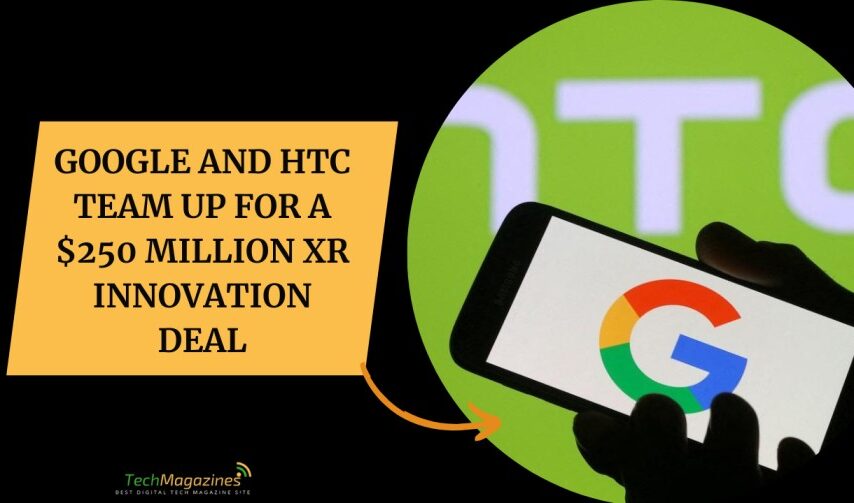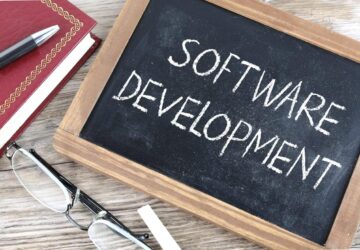Google just inked a deal with HTC to bring select members of HTC’s VIVE XR engineering team onboard. Of course, it’s all still pending the usual legal red tape, but this move signals a power play in the booming XR (Extended Reality) arena. For Google, it’s a calculated leap; for HTC, it’s a chance to pivot. Either way, this partnership feels like a chapter straight out of Silicon Valley’s ever-evolving playbook.
- Cha-Ching: HTC walks away with a cool $250 million in cash from Google. Not bad for a day’s work.
- Team Shuffle: A handpicked group of HTC’s XR engineers is packing their bags and heading to Google.
- IP Sharing, But Not Exclusive: Google scores a non-exclusive license to HTC’s XR-related intellectual property. Translation? HTC gets to keep playing in the XR sandbox too.
- Eyes on the Future: Both companies are keeping the door open for more collaboration down the line. Think of this deal as the first chapter, not the last.
The Deal is considered a Win-Win
HTC says this deal is a win-win: it’ll keep sharpening its focus on XR innovation while ensuring its current product lineup, including the VIVE Focus Vision, remains untouched. Translation? No disruption, just more room to push XR tech forward.
Meanwhile, Google’s playing the long game. This acquisition isn’t just about snagging top-tier talent—it’s about doubling down on the Android XR platform and bolstering its ecosystem of headsets and glasses. With Taiwan as its growing innovation hub, Google’s sending a clear message: the future of XR runs through here.
The deal is set to wrap up by Q1 2025, pending the usual paperwork and red tape.
Conclusion
The dust hasn’t even settled. Digital or otherwise. Google and HTC made a $250 million investment to support extended reality development despite its undefined meaning. It’s not about reality. Through this partnership they aim to create something larger and more unusual and more glimmering.
FAQs
Q1: What exactly is this deal between Google and HTC?
Google’s not buying HTC. Not really. They’re buying brains. Hands. The people who dream up headsets and make them real. $250 million for a chunk of the VIVE XR team, plus a hall pass to raid HTC’s XR tech stash. Not exclusive, though. HTC keeps their toys. Google just gets to play too.
This isn’t a merger. It’s a hostage exchange. A little talent here, a little intellectual property there. HTC stays in the game, selling their gadgets. Google powers up their Android XR empire. Two companies, one dance. Nobody’s sitting this one out, but nobody’s giving up their shoes, either.
Q2: Why is this deal significant for the tech industry?
This isn’t a handshake. It’s a fault line cracking open under the XR world. Google’s dropping a pile of cash on HTC’s XR talent, a clear signal: they’re not just dabbling. They’re digging in. This isn’t some passing fad, a tech trend to slap on a keynote slide. No, XR is the next mutation, the new way we’ll crawl through digital spaces.
Q3: What does HTC get out of this partnership?
HTC receives $250 million in cash and declares the transaction a company reset. A breath. HTC gains $250 million while maintaining their opportunity to develop their XR products without damaging their existing VIVE Focus Vision or other lineup devices. Google shares the financial responsibility yet HTC maintains full control over their core competencies of innovation and future development. This isn’t selling out. It’s buying time. HTC received $250 million to refine their technology while another company handles the basic development tasks. They are not finished competing. Not even close. The company HTC continues its battle to remain relevant beyond its status as a digital revolution footnote.
Q4: When will this deal be finalized?
The deal wraps by Q1 2025. Maybe. The lawyers need to find enough time between plate spinning to finalize the paperwork. In the tech sector “almost there” functions as an extended waiting period alongside secretive negotiations and high-stakes boardroom confrontations that people would pay to view. Circle the date. Or don’t. The current pace serves as the lead-up to the major transformation which will transform XR into something new. No matter what happens this is more than just signing documents. The transformation will remain noticeable even after the documents are signed.








